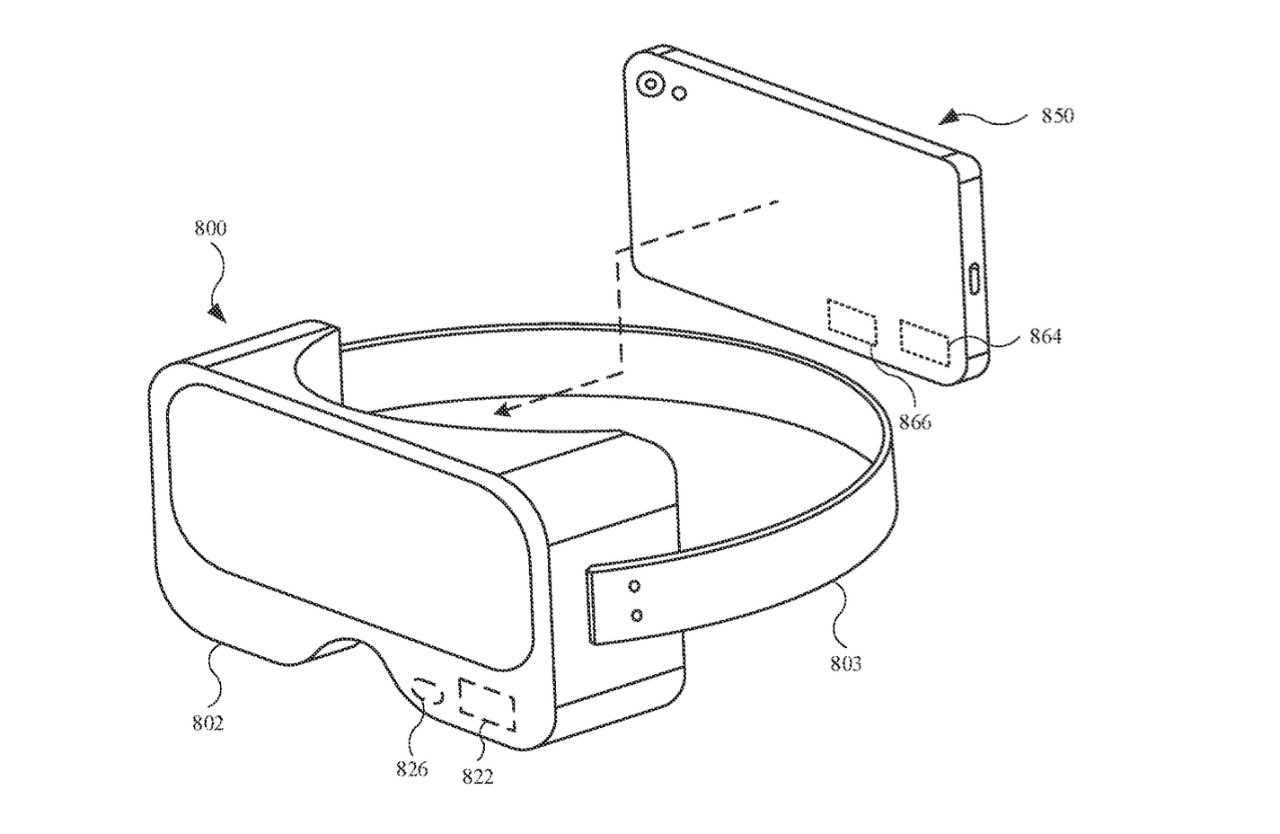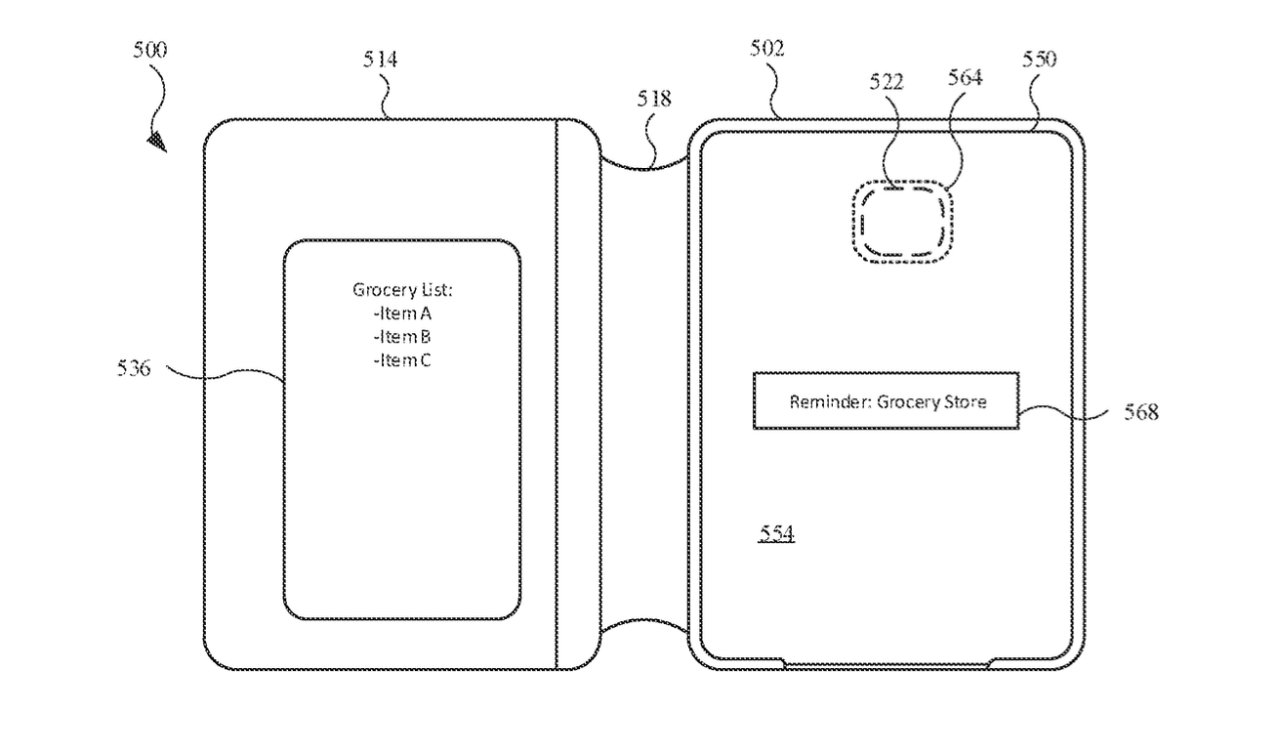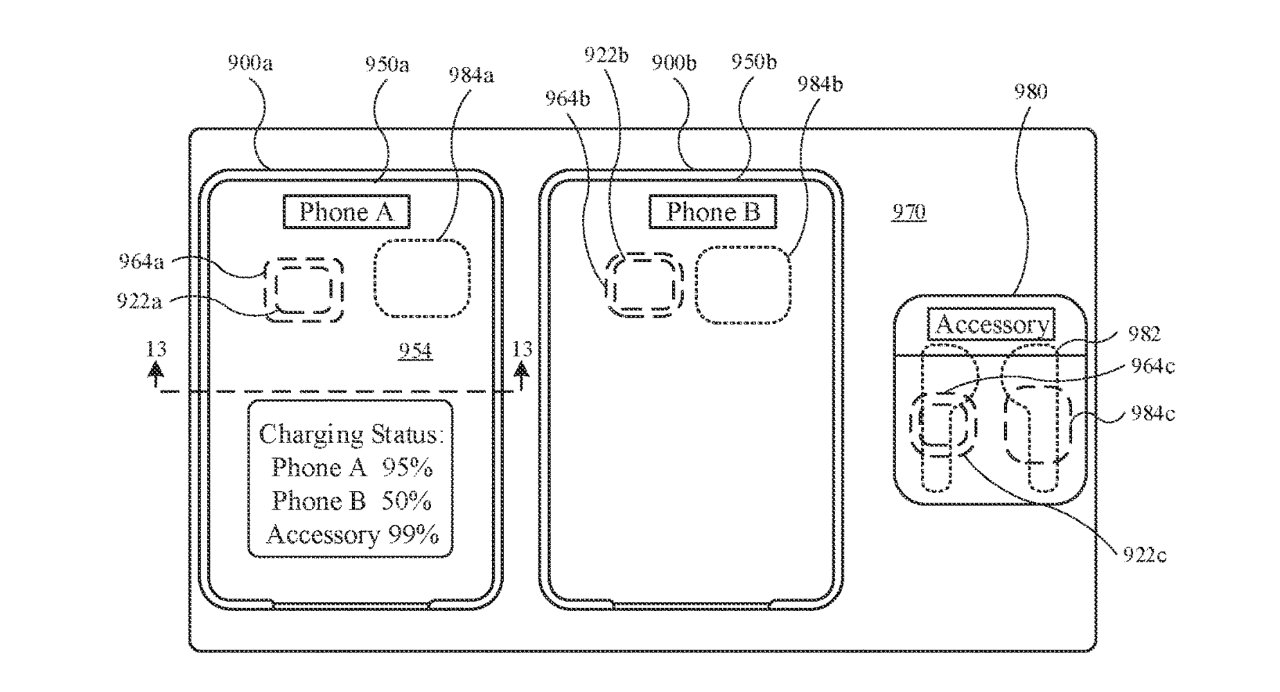Apple is researching how to build iPhone cases that communicate with the device inside them to show battery level, authenticate you for automatic unlocking, and so much more.
You’re used to battery cases that show a green or red status light when they’re charging an iPhone. It would be good if we didn’t need these extra batteries, but it would also be handy if we got a bit more information from them, and that’s now what could happen.
A newly-granted Apple patent shows that we may get cases that show the actual battery level. However, despite the entire patent being named after that one example, the detail describes countless further functions that could make the case be practically an extension of the iPhone.
“Electronic Device That Provides Battery Charging Status,” is also really concerned about communication between any two devices, and at one point even shows an AR headset with an iPhone being connected.
However, the majority of the patent text looks to describe iPhones and a surrounding protective case for them.
“Accessory devices can be used to carry and protect electronic devices,” it says. “Some accessory devices may include a compartment to store the portable electronic device.”
“The accessory device may further include wireless circuitry embedded in the receptacle,” it continues. Then if an iPhone is placed in the case, “a communication channel [could be] established between the electronic device and the wireless circuitry when the target is detected.”
In what Apple is careful to stress is a “non-limiting example,” the connection “may include wireless communication circuitry such as near- field communication (‘NFC’), or communication protocol and data exchanges included in standards covered by ISO IEC 14443 and ISO/IEC.”
The implication is that any information could be communicated from the iPhone to the case. So instead of just a red or green light, such a case should be one that “provides battery charging status.”
It could give you a specific percentage number, or it could show a charging progress bar, for instance.
“The wireless circuitry and the wireless circuitry can transmit the battery charge level information to the wireless circuitry in the accessory device,” says Apple, “which in turn, can transmit the battery charge level information to the electronic device via the wireless circuitry.”
Nicely, it needn’t be only the iPhone’s battery charge information that gets relayed. Just as the iPhone now has a widget that will show the charge of linked items such as AirPods and their case, so could this proposed future case.
There is also a drawing in the patent that resembles cancelled AirPower. In that drawing, the separate battery percentage charges of two iPhones and one set of AirPods are shown.
So many possible uses
However, if Apple started this research focusing on batteries, along the way it found simply myriad other uses.
“In this regard, wireless circuitry described herein may include features such as card emulation, read/write capabilities, and/or peer-to-peer information exchange,” continues the patent.
In broad terms, it also describes how a case can be used to unlock a device for its owner.
“When the authentication request from the electronic device is provided to the accessory device,” it continues, “the accessory device may then respond, using wireless circuitry, with a validation response to the electronic device.”
So while the process is not detailed, it would be similar to how authentication can work now with an Apple Watch. If you are wearing an Apple Watch and have entered your passcode into it, then a connected iPhone or a Mac can trust the Watch’s authentication and unlock without you having to do anything more.
But this is also a situation where information has to pass in both directions — and Apple has more ideas for that.
“As non-limiting examples, [this] information may include characteristics of the accessory device, such as the color, materials, reflective properties of the material(s),” says the patent. “In addition, the accessory device may store information related a theme, hobby, or something of particular interest to a user.”
“By obtaining the information from the accessory device, the [iPhone or other] electronic device performs several operations,” it continues. “For example, when the electronic device receives color information pertaining to the accessory device, the electronic device can apply a filter to a display… that matches the color of the accessory device.”
It’s all such a very, very long way from a tiny green LED meaning a battery case is charged.
The patent is credited to eight inventors, including Stephen T. Schooley. He previously worked on a patent application describing how MagSafe could transmit data and authenticate users through peripherals.
This story originally appeared on Appleinsider




